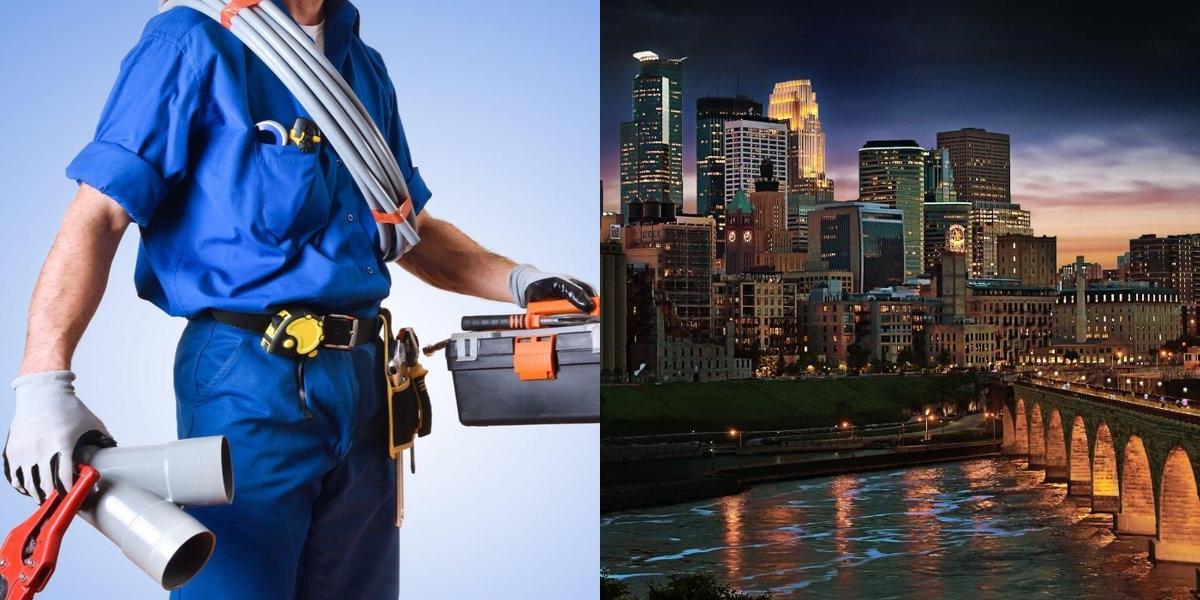How to Become a Plumber in Minnesota

Plumbers play a crucial role in maintaining and installing various systems related to water supply, heating, and sanitation. They are responsible for ensuring that plumbing systems are functioning properly and efficiently. Here are the key points to consider if you are interested in becoming a plumber in Minnesota:
Step 1: Create a Professional Resume
A well-crafted resume is essential for securing a job in any industry, including plumbing. Make sure to highlight your relevant skills, certifications, and work experience. Include any specialized training or additional certifications you have obtained, as well as any notable projects or achievements.
Step 2: Network with Industry Professionals
Networking is a powerful tool for finding job opportunities in the plumbing industry. Attend trade shows, conferences, and local plumbing association meetings to meet and connect with professionals in the field. Building relationships with established plumbers and contractors can often lead to job referrals or apprenticeship opportunities.
Step 3: Apply for Plumbing Jobs
Keep an eye out for plumbing job openings in your area. You can search for job postings on online job boards, company websites, or local classifieds. Apply to positions that align with your skills and experience, and be sure to customize your application to highlight relevant qualifications.
Step 4: Consider Joining a Plumbing Union
Joining a plumbing union can provide you with access to job opportunities, training programs, and additional benefits. Unions often have partnerships with employers and can help connect you with potential employers. They may also offer apprenticeship programs and continuing education courses to further develop your skills.
Step 5: Start Your Own Plumbing Business
If you have gained sufficient experience and feel confident in your skills, you may consider starting your own plumbing business. This path offers the potential for higher earnings and the ability to be your own boss. However, starting a business requires careful planning, knowledge of local regulations, and the ability to manage and market your services effectively.
Career Paths and Opportunities after Becoming a Plumber
Becoming a certified plumber opens up a range of career paths and opportunities. Here are some options you can explore after obtaining your plumber certification:
Residential Plumbing
Many plumbers choose to specialize in residential plumbing, which involves installing, repairing, and maintaining plumbing systems in houses and apartments. Residential plumbers work on projects such as installing fixtures, repairing leaks, and unclogging drains. This field offers steady work and the opportunity to build long-term relationships with homeowners and property managers.
Commercial Plumbing
Commercial plumbing involves working on larger projects such as office buildings, schools, hospitals, and shopping centers. Commercial plumbers install and maintain plumbing systems that can handle higher volumes of water and more complex setups. This sector often requires working closely with architects, engineers, and contractors to ensure compliance with building codes and regulations.
Industrial Plumbing
Industrial plumbers work in industrial facilities such as manufacturing plants, power plants, and refineries. They are responsible for installing, repairing, and maintaining plumbing systems that are specific to industrial processes. This field requires a deep understanding of specialized equipment and systems, as well as a strong emphasis on safety and compliance.
Construction Plumbing
Construction plumbers work on new construction projects, including residential and commercial buildings. They collaborate with other tradespeople to ensure that plumbing systems are installed correctly and on time. Construction plumbers must be able to read blueprints, follow building codes, and work efficiently within tight deadlines.
Service and Maintenance Plumbing
Service and maintenance plumbers focus on repairing and maintaining existing plumbing systems. They respond to service calls from residential and commercial clients to fix leaks, unclog drains, and address other plumbing issues. This field offers a steady stream of work and the opportunity to work independently or as part of a service team.
Green Plumbing
As environmental concerns continue to grow, there is an increasing demand for green plumbing solutions. Green plumbers specialize in installing energy-efficient fixtures, water-saving systems, and environmentally friendly plumbing solutions. This field requires knowledge of sustainable practices and technologies, as well as an understanding of local regulations and incentives.
Final Thoughts
Becoming a certified plumber can lead to a rewarding and lucrative career. By completing a plumbing apprenticeship program, obtaining certifications, and gaining work experience, you can position yourself for success in the plumbing industry. Whether you choose to specialize in residential, commercial, industrial, or green plumbing, there are ample opportunities to grow and advance in this field. So, if you have an interest in problem-solving, working with your hands, and making a difference in people's lives, a career as a plumber may be the right path for you.
For more information on plumbing certification programs in Minnesota, you can visit the Minnesota Plumbing Apprenticeship Program website.
If you are looking for plumbing services in Minnesota, you can contact ABC Plumbing, a reputable plumbing company with years of experience in the industry.
If you're thinking of a new career path, Dreambound offers in-depth guides to understand various job choices:

Vduani Martinez is a part of the Growth team at Dreambound. She creates and fixes workflows and automation to guarantee seamless operations. On top of that, she manages databases to ensure all information is up to date. Vduani is a licensed Electronics Engineer who loves coffee and is a travel enthusiast. Out of the office, she enjoys going on road trips and discovering new cafes and restaurants.





